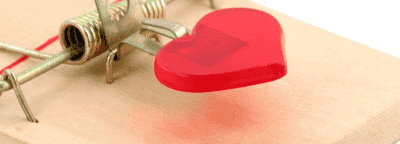
If you’re wondering how to identify spam on Facebook dating, there are many ways you can go about it. First of all, don’t be fooled by the appearance of a profile. Oftentimes, the person in question isn’t who they say they are. While they may have a photo of themselves on Facebook, it may be someone else’s…..
Identifying scammers on Facebook
One of the first steps in identifying scammers on Facebook dating is to look for red flags. Often, a scammer won’t let you see their photos or video chat. This is a sign that they’re not real. Be wary of any profile with only one or two pictures. It’s a good idea to verify the legitimacy of people online by visiting BeenVerified.
When a person is posing as a scammer on Facebook, he/she may be using a photo that was stolen from a social media website or photo-sharing website. Facebook’s privacy settings let users choose who can view their profile. It is best to restrict access to Facebook to people you already know. You can also limit your interaction with friends of friends.
Another way to protect yourself from online romance scams is to keep your profile private. The better business bureau has issued an advisory regarding Facebook dating. As Facebook’s dating app develops, more people are becoming victims of “catfishers” – crooks who pose as lovelorn and pull a romance scam. For example, one holistic healing business owner received six sketchy “friend requests” on Facebook in one weekend. Other users have reported similar experiences. These experiences don’t surprise experts. Nevertheless, people must be extra vigilant to protect themselves.
Identifying fake profiles
Fake profiles are a big problem on Facebook. These profiles are created by computer programs. They may have weird grammar, or contain links to malware. You can avoid being scammed by knowing how to spot fake profiles. You can also use facial recognition technology to find out whether a profile is real or fake.
Fake profiles can also have strange names. These profiles often have usernames that include numbers. Furthermore, they may not have a complete biography. You can also tell if a profile is fake if it only includes links to places with viruses. Some fake profiles even share content from other people.
Fake profiles may have unrealistically high numbers of friends. They may also be using provocative profile pictures to attract people. Such profiles may have limited personal content and rarely update their statuses.
Avoiding scammers
There are a few signs to look out for when you meet a potential match on Facebook. Be wary of anyone asking for money, gifts, or video chat, and avoid responding to messages that appear to be from an online scammer. Scammers often use elaborate scenarios to lure victims, such as requesting personal information or money for investing in cryptocurrency apps or websites. Scammers are also unlikely to invite you out for a video or Skype call, and will often make excuses for not being on camera.
Be suspicious of anyone claiming to be living overseas. Scammers love to exploit long distance relationships, so if you are unsure of a person’s location, it’s best to keep away from them. They may ask you to pay for travel costs, medical procedures, or even visas. Be wary of anyone who requests money via anonymous transfers. Beware of reloadable gift cards and wire transfers, as they are commonly used by criminals.
Scammers usually pose as legitimate businesses or organizations. They may ask for personal information like credit card numbers and social security numbers. Don’t click any links, and question the legitimacy of any giveaways you see on Facebook.
Reporting scammers
If you have met a person on Facebook and feel like he is a scammer, it is important to report him immediately. You can do this by selecting the three dots on the upper right corner of the person’s profile, and then clicking on the ‘Report’ button. Facebook will then take the necessary steps to block the person from the site.
Facebook dating scams often target young people, as they are often unaware of how to spot a scammer. Many of these victims have never been on a dating site, so they are naive and easily manipulated. Because people trust strangers online more than they do in person, this makes it easier for scammers to prey on their naiveté.
A common warning sign of a scammer is inconsistent profile text. In some cases, they will copy and paste other profiles’ messages. You should not reply to such messages. If a scammer asks for money, gifts, or your bank account or credit card details, be wary. The messages they send are also frequently poorly written. They will escalate quickly from an introduction to love to a desperate plea for money.







